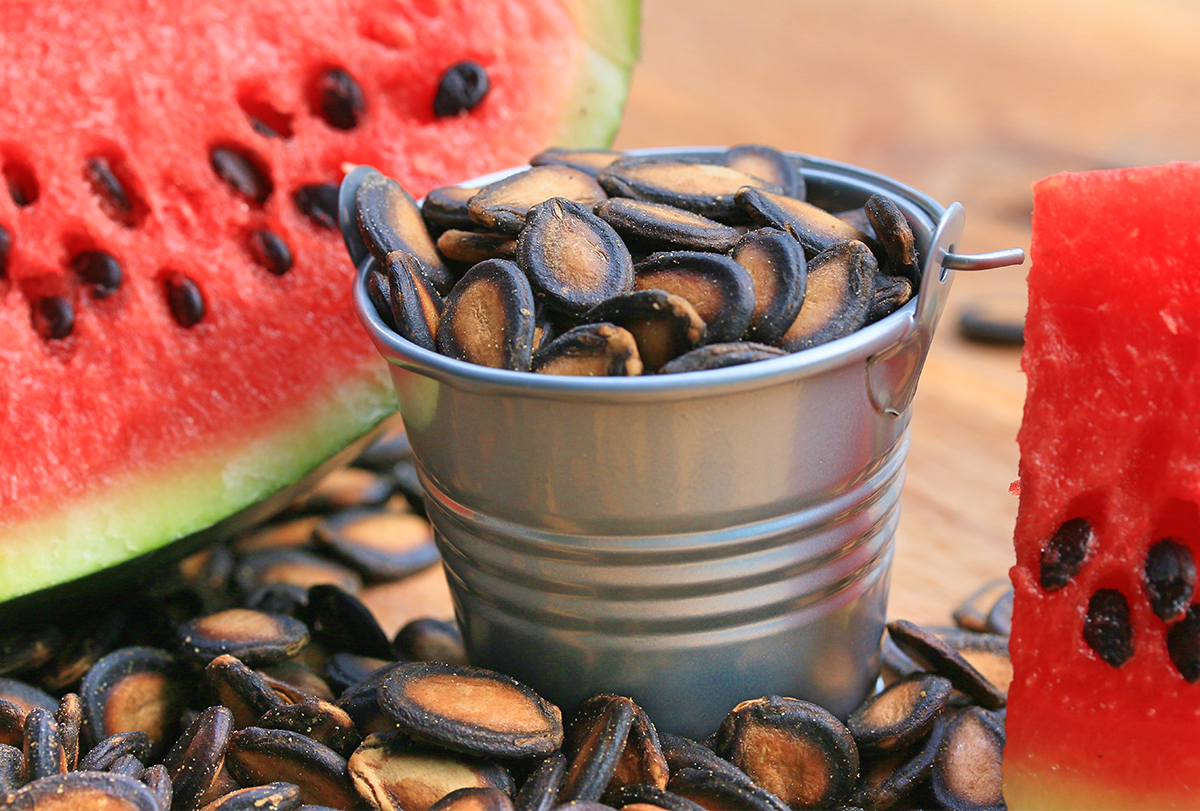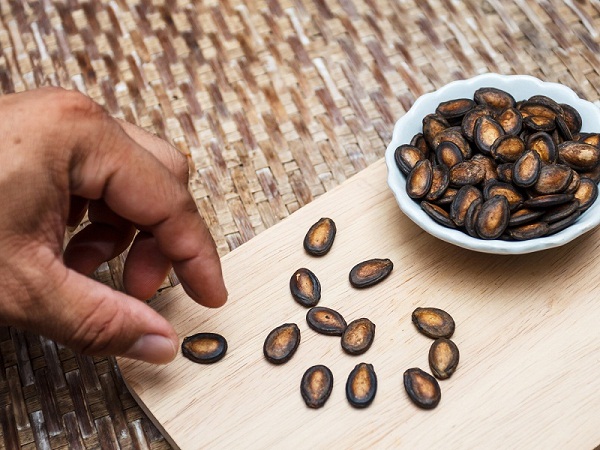Powerful Health Benefits of Watermelon Seeds: Why You Should Not Throw them Away
Majority of you throw watermelon’s seeds while eating a watermelon. If you eat them, you probably don’t know that they benefit your digestion, but the digestive tract ejects them untouched. Therefore, their usefulness is almost not used.
READ MORE:11 Health Benefits of the Watermelon Rind
Benefits of Watermelon Seeds
If you
like to use the benefits of the seeds, you must to boil, crush or bake them to
get to the content. The fibers included in the seeds are vital for normal
functioning of the digestive tract. They will help against intestinal
parasites, also for patients that are suffering from jaundice, guided diseases
and inflammatory issues.
The
citrulline substance included in the seeds affects as an antioxidant, which
helps to augment blood vessels, arteriosclerosis, with high blood pressure and
angina pectoris. According to the American scientists from the early
20thcentury, the watermelon’s seeds are very helpful for the kidney and the
urinary tract. They said that you can use a tea from the fresh seeds, which is
helpful diuretic and is good for cleansing stones and sand from the kidneys and
urinary tract.
ALSO SEE:7 Things that Happen When You Eat Watermelon Everyday
It is
considered that the seeds are boosting the heart and the body’s muscle
structure. Watermelon’s seeds are useful for memory and concentration, and the
blaze and tightness of the skin. You can use them in the form or tea or snacks.
Tea seeds are very efficient in treating diabetes type 2 and are highly
recommended for diabetics. The men can use the seeds to bolster their libido
and potency.
Magnesium, vitamins A, B, C, iron, antioxidants, manganese, calcium, polyunsaturated, and monosaturated fats, are all included in the watermelon’s seeds.
More Benefits of Watermelon Seeds
We'll explore the health benefits of watermelon seeds and why you should consider incorporating them into your diet.
Watermelon seeds are a rich source of nutrients such as protein, healthy fats, and minerals like magnesium, potassium, zinc, and iron. These minerals play a vital role in maintaining healthy bones, supporting the immune system, and regulating blood pressure.
Additionally, watermelon seeds contain vitamin B-complex, which is essential for maintaining healthy skin, hair, and nails. Vitamin B-complex also helps convert food into energy and plays a crucial role in brain function.
Watermelon seeds contain dietary fiber, which is important for digestive health. The fiber helps regulate bowel movements, prevent constipation, and reduce inflammation in the gut. Eating watermelon seeds can also help improve nutrient absorption in the body, leading to better overall health.
Watermelon seeds are a good source of healthy fats such as monounsaturated and polyunsaturated fats, which are beneficial for heart health. These fats can help lower bad cholesterol levels, reduce the risk of heart disease, and improve blood flow throughout the body.
The zinc content in watermelon seeds is beneficial for the immune system. Zinc is essential for the production of immune cells that help fight off infections and illnesses. Eating watermelon seeds can help boost your immune system and keep you healthy.
Watermelon seeds contain lycopene, an antioxidant that has been shown to improve male fertility. Lycopene can help increase sperm count, improve sperm motility, and reduce the risk of prostate cancer.
How to Eat Them Watermelon seeds
There are various ways to incorporate watermelon seeds into your diet. You can eat them raw, roasted, or ground into a powder. Roasting the seeds brings out their nutty flavor and makes them easier to digest.
To roast watermelon seeds, rinse them under cold water and dry them thoroughly. Spread them on a baking sheet and roast them in the oven at 325°F for 15-20 minutes. You can season them with salt, chili powder, or other spices to add flavor.
You can also add watermelon seeds to smoothies, salads, and baked goods like muffins and bread. Ground watermelon seeds can be used as a thickener in soups and stews.
Preparation
of Watermelon Tea:
Take 4 tablespoons of fresh and crumbled watermelon seeds. Boil them in 2 liters of water for 15 minutes. You should consume this amount of tea for two days and pause in the third day. Continue this process for several weeks. The results will surprise you.
RELATED:How To Pick Ripe Watermelon: how to pick a sweet watermelon every time













Am very impressed to learn about these seeds, I will now start using them efficiently.
I'm glad you do. Keep reading from our site for more.
Am glad to learn about this